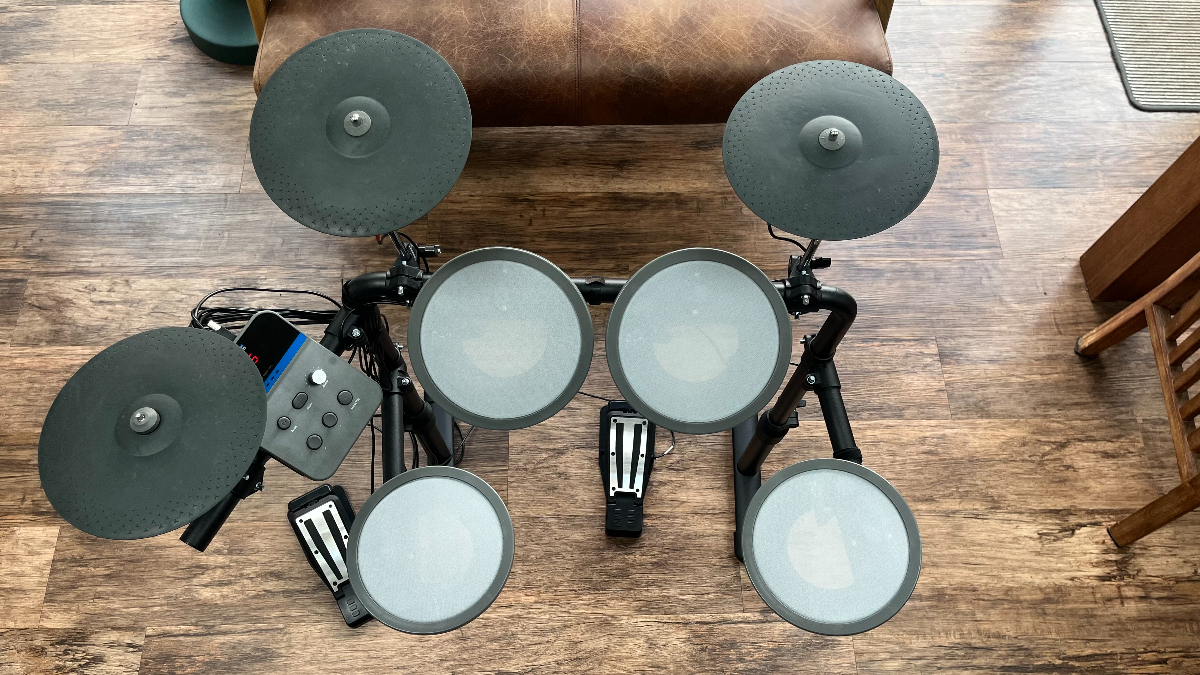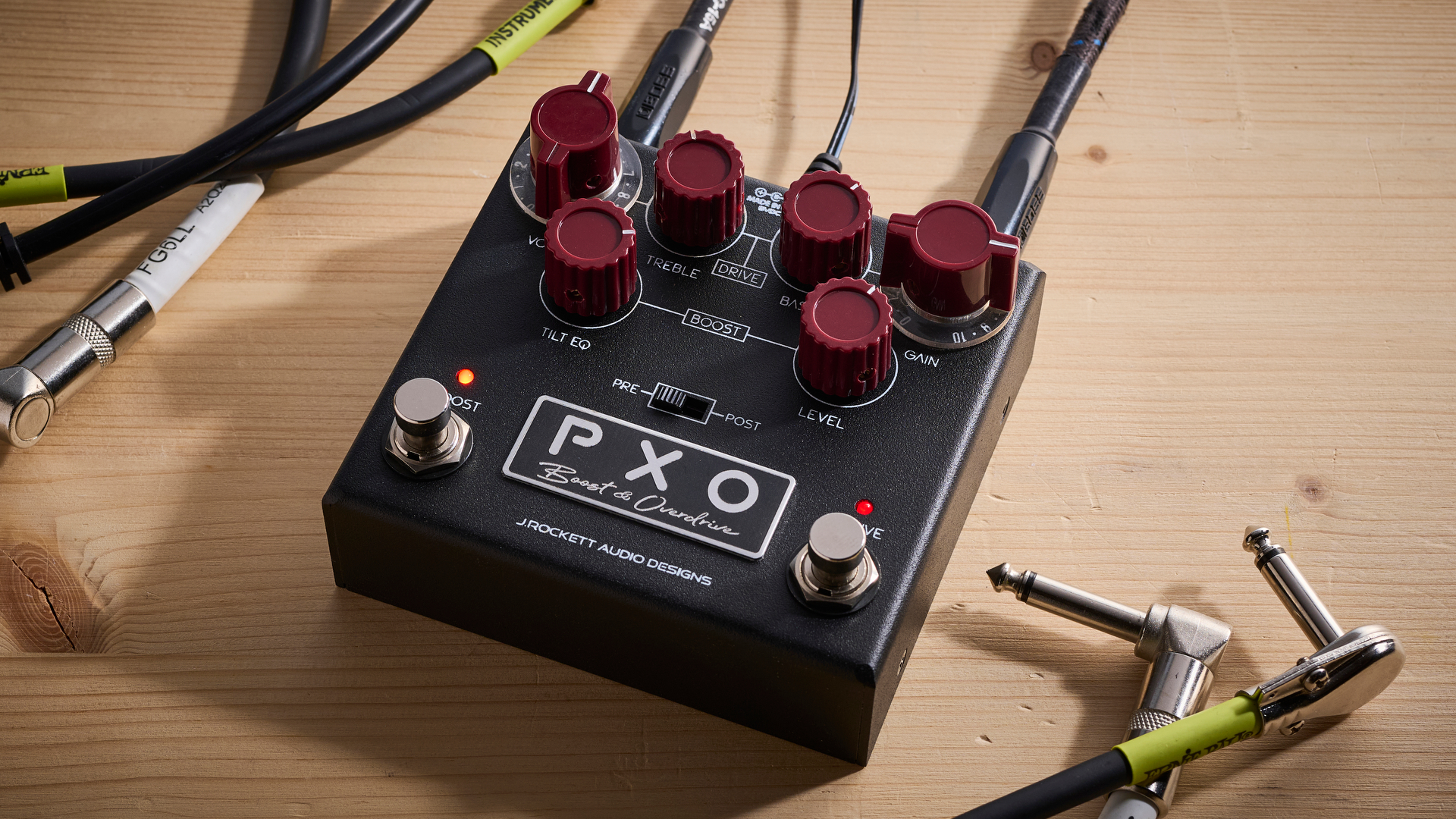MusicRadar Verdict
A great value electronic drum set with a lot of features for the money. It’s not perfect, but it’s a lot better than kits at this price have traditionally been. If you need a small kit for low-noise environments then it checks all the boxes
Pros
- +
Affordable
- +
Small-size solution with mesh heads
- +
Perfect for beginners
Cons
- -
They’ll outgrow it eventually
- -
Lacks expandability
MusicRadar's got your back
Millenium Rookie electronic drum set: What is it?
Budget electronic drum sets are nothing new. But there’s long been a minimum level that separates an actual, viable musical instrument and a borderline toy when it comes to the first rung on the entry-level ladder.
Not very long ago, the latter meant generic kits with hard plastic pads which were not only acoustically loud but just as unforgiving on the hands and about as dynamically responsive as hitting a coffee table. These were typically paired with flimsy, lightweight stands and fixings that couldn’t hold the pads in position properly.
But that was then, and in 2023 we have a fair few affordable options available to us from brands such as Roland (TD-02) Yamaha (DTX 402) and Alesis (Debut), but Thomann-owned Millenium is here to take a hammer to that price floor with its Rookie kit: aimed primarily at beginners and specifically, smaller people, it sits at 57cm at its lowest but is also extendable up to 80cm.
Smashing through the sub-£200 price point at around £165, there are some familiar themes: a five-piece setup with one crash cymbal, one ride cymbal and one hi-hat pad. There are two foot pedals for the hi-hat control and bass drum alike, and a simple module providing 12 kits, a metronome and a collection of onboard ‘songs’ to play along with. Connectivity is kept equally simple, with a single connector for the pad cable loom, a headphone output, mono line output, aux-input and USB MIDI.
What’s less common, though, is the fact that the Rookie comes equipped with mesh heads on the snare and three tom pads. With their noise-busting performance, mesh pads are usually reserved for higher-priced kits with brands supplying rubber pads to help keep the costs down.
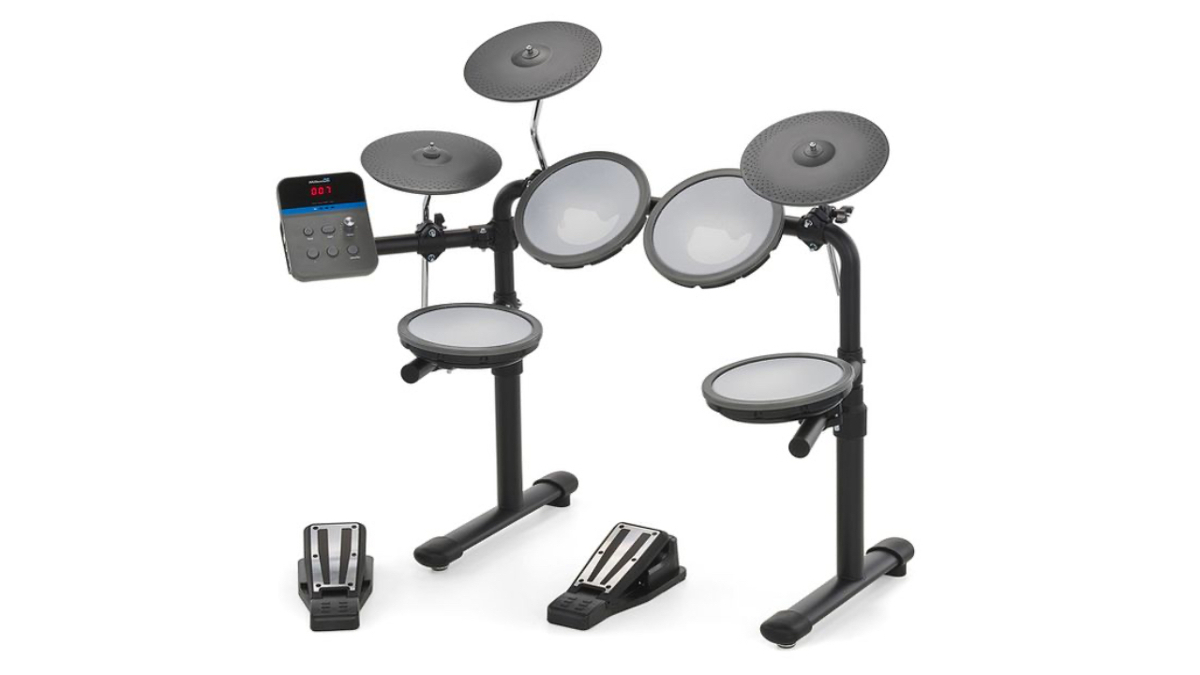
Millenium Rookie electronic drum set: Performance and verdict
We review a lot of electronic drums here at MusicRadar, and with each kit there are usually enough cardboard boxes to recreate the Stonehenge scene from This Is Spinal Tap, but without any of the fun. The Rookie, however, arrives in a single, surprisingly compact box. Inside, the frame is partially assembled and the rest of the components (pads, pedals, clamps etc.) are neatly arranged.
Our review kit came with instructions, albeit in German, but thanks to the pictures and the simplistic design, putting the rest of the parts together was easy. The cymbal pad clamps are already attached to the crossbars, leaving us to clamp the cymbal arms into place. Meanwhile, the drum pads and module each attach using a simple plastic clamp and square-headed tension bolts. In total it’ll take about 25-30 minutes to get set up, and crucially, everything feels sturdy.
The pads connect to the module via a DB-15 connector with mono jacks on the end of each cable. These are clearly labelled so connecting them to the correct pads is a doddle, and there are hook-and-loop tabs supplied to fix the cables neatly in place.
With that done, it’s time to switch on. The Rookie module is powered by a USB-C to USB A cable, which plugs in, phone charger-style to a wall wart. This brings us to our first problem, which is that our review kit is supplied with a European plug. This is easily overcome with a Euro/UK plug adaptor or standard phone charger, but intriguingly we also had success powering our Rookie from a rechargeable USB power bank. That may not be as silly as it sounds either, considering that it opens up the possibility of playing the Rookie in places where there isn’t (or limited) mains electricity such as garden sheds, garages, lofts etc.
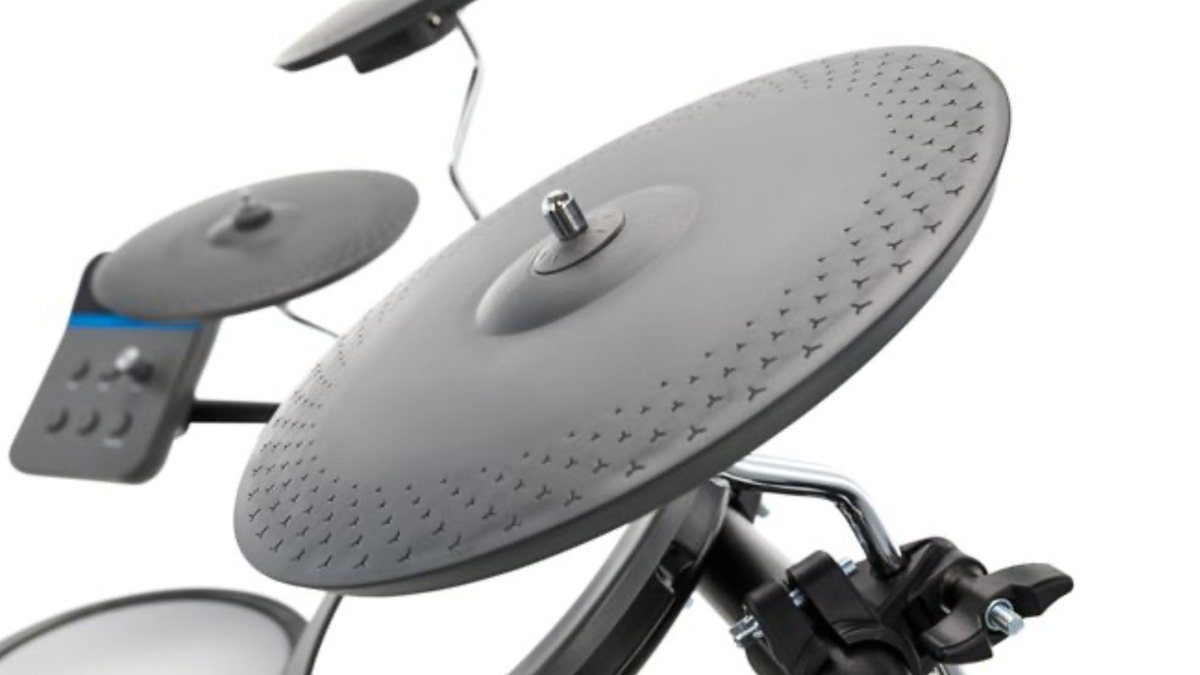
The Rookie comes with almost everything you’ll need to start playing (including sticks), there are however a couple of things you’ll need to consider. First up are headphones, and you’ll need a wired set to connect to the Rookie’s 3.5mm headphone socket.
Next is a stool. Thomann sells the Rookie as a bundle with its child-size Millenium MDTJR stool (£35) and a pair of T-Bone HD-200 headphones (£18) for roughly £45 extra so it’s worth considering if you’re starting from scratch.
The mesh pads are a good value inclusion. In this instance, the mesh is single-ply rather than the dual-layer kind supplied with Roland kits, and they come fitted at a predetermined tension which can’t be changed. It’s medium-tight and feels natural for the snare and two rack toms, less so for the floor tom, but they react smoothly to our playing dynamics across the board and, of course, keep the airborne noise down.
That is unless you miss-hit the pads, at which point you’ll connect with the hard plastic bezel for a sharp ‘clack’. The noise this produces is less of a problem for the player, and more of a problem for those hearing you play. That said, with the door shut it won’t travel very far and the occasional plastic ‘thwack’ is arguably preferable to a constant dull tapping of dense rubber.
The cymbals - though small - are equally as impressive for the money. These are covered at 360 degrees with soft rubber, meaning that if they spin while you’re playing (and we didn’t notice ours turning much), you won’t meet the same problem as miss-hitting the drum pads.
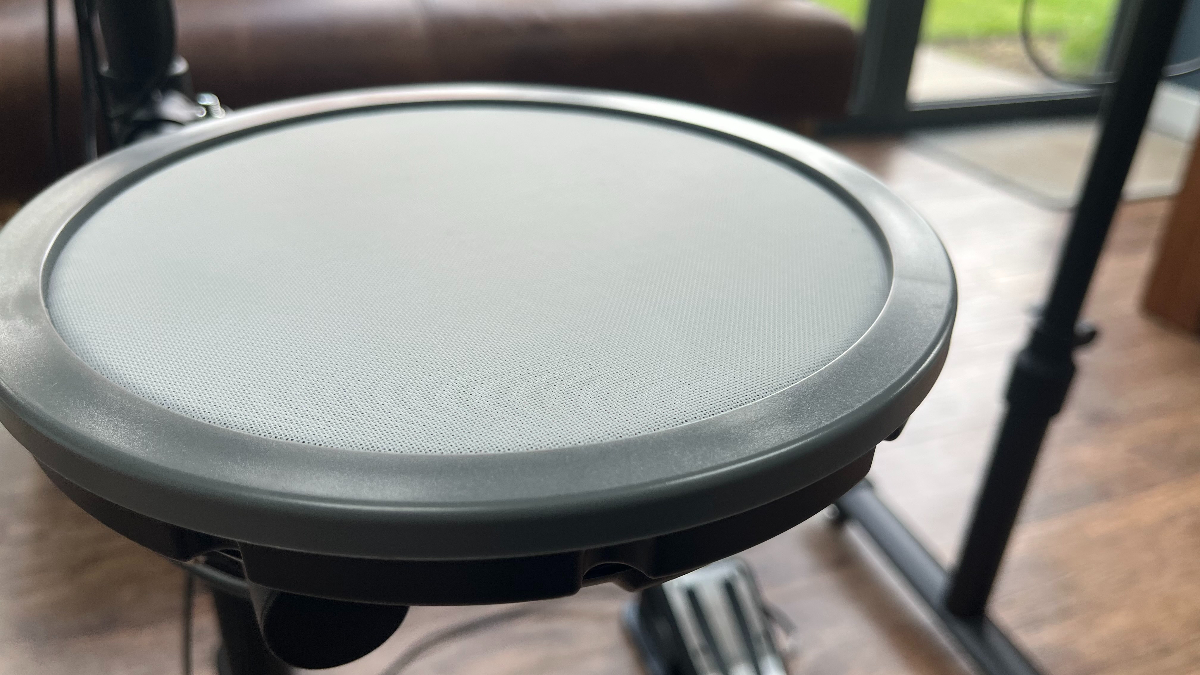
A very common feature of affordable electronic kits is the inclusion of an all-in-one foot pedal for the bass drum rather than a traditional pad-and-pedal setup. Not only does this keep the cost down, but it eliminates a lot of noise too, as a beater hitting a solid pad has a tendency to rattle its way through floorboards with every stomp.
It’s a trade-off though, because a real bass drum does use a pedal, so if you’re using this to learn on and jumping between the Rookie and an acoustic kit during lessons, there will be some adjustment in technique needed. The Rookie’s bass drum and hi-hat pedals are identical, and perhaps it’s because our review kit is box fresh, but the pedal’s spring has a lot of bounce.
There’s no editing, no fiddly menus, what you see (or hear) is what you get and given that this is aimed at beginners, we think that helps to make it intuitive.
This is something that could ease up over time, but during our time with the kit we did find that playing faster patterns on the bass drum was difficult, fighting the spring meant that it wasn’t always triggering every note we attempted to play. It won’t be a problem to start with, but beginners do improve and faster playing will become a goal.
Operation of the module is easy thanks to the sparse number of controls. There’s a power button, a select button for scrolling through the module’s modes (Drums for kit select, metronome tempo and time signature and song selection), plus and minus buttons for making your selections and a metronome/song start/stop button. Finally, there’s a master volume control which turns the kit and song/metronome volume up globally. There’s no editing, no fiddly menus, what you see (or hear) is what you get and given that this is aimed at beginners, we think that helps to make it intuitive.
Sound-wise, we’re met with 10 acoustic-style and two electronic-tinged kits, and they’re pretty good! Are you going to play a gig with them? No, but for getting to grips with playing they’re inoffensive samples (if a little noisy at times) that work well. We’d perhaps like to have seen a little more variation given that there are only 12 kits in total - it’s very much a collection of Rock Kit 101 with tweaks throughout, but we do also have to remind ourselves of the price tag.
The metronome is a must-have for any beginner drummer, and any electronic set aimed at them. It’s easy to use with only one sound, and changing tempo is easy. The facility to change the metronome volume would be nice, but it's preset to sit just loud enough next to the sounds from the pads to not be a problem.
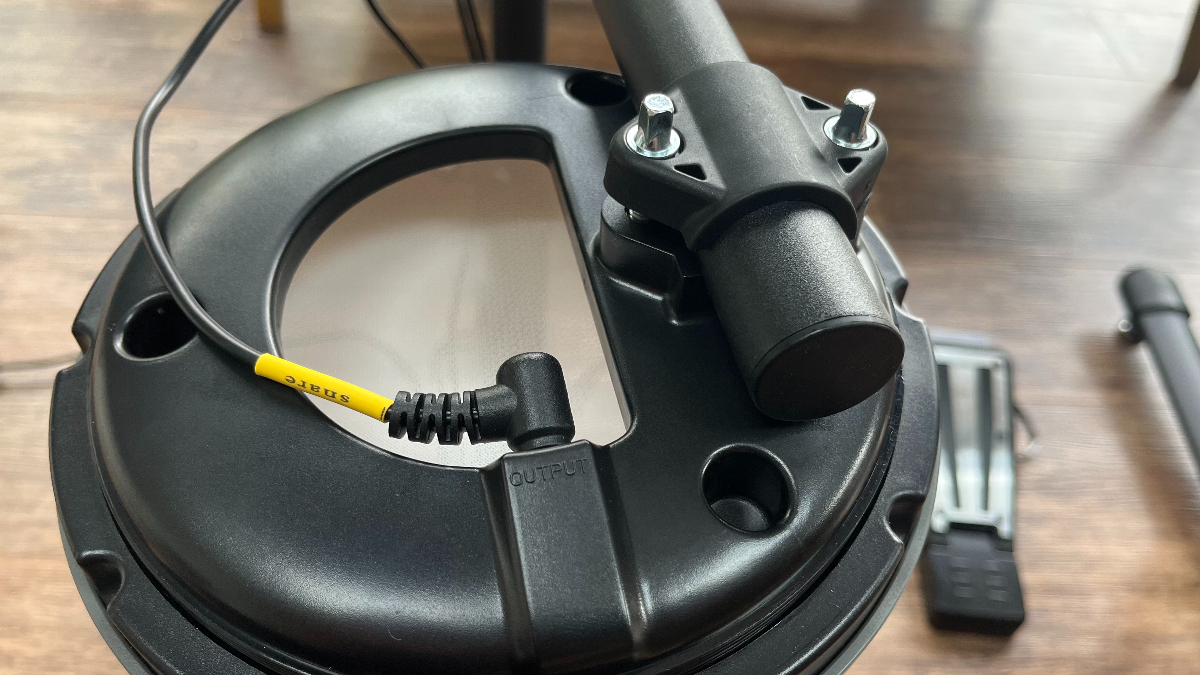
Next up are the ‘songs’. We understand why Millenium feels the need to include this feature in order to pad out the spec sheet, however, there’s a strong ’90s-General-MIDI-tone-generator vibe from the backing tracks. Imagine Eurovision deep cuts powered by your uncle’s Nintendo N.E.S. and you’re not far off. Try them out, play along, and then forget they exist forever.
Instead, turn your attention to the much more useful aux input which allows you to connect your phone - and therefore any sound you can play from it - into the module for jamming in your headphones.
Overall, the Rookie is designed to hit a price point, which it absolutely achieves. The mesh pads are a boon, the sounds work well and there are just enough features to get you started.
The size of the kit, bass drum footswitch, single-zone pads (particularly when applied to the snare) and lack of expandability could mean that the Rookie isn’t particularly future-proof, but clearly, that’s not the objective here. If you’re looking to introduce your child to drumming with an affordable and easy-to-use electronic drum set (rather than a toy) the Rookie will have you covered, at least in the short-medium term.
MusicRadar verdict: A great value electronic drum set with a lot of features for the money. It’s not perfect, but it’s a lot better than kits at this price have traditionally been. If you need a small kit for low-noise environments then it checks all the boxes.
Millenium Rookie electronic drum set: Hands-on videos
Drums Bonedo
MusicGearz
Millenium Rookie electronic drum set: Specifications
- Pads: 4x drum pads; 2x cymbals; 2x foot pedals; 1x hi-hat pad
- Kits: 12
- Sounds: 68
- Songs: 10
- Connectivity: USB MIDI; 6.3 mm stereo jack line output; 3.5mm headphone output; 3.5mm aux-input; USB-C power supply
- Required floor space: 100 x 50 cm
- Height: min. 57 cm, max. 80 cm
- CONTACT: Millenium
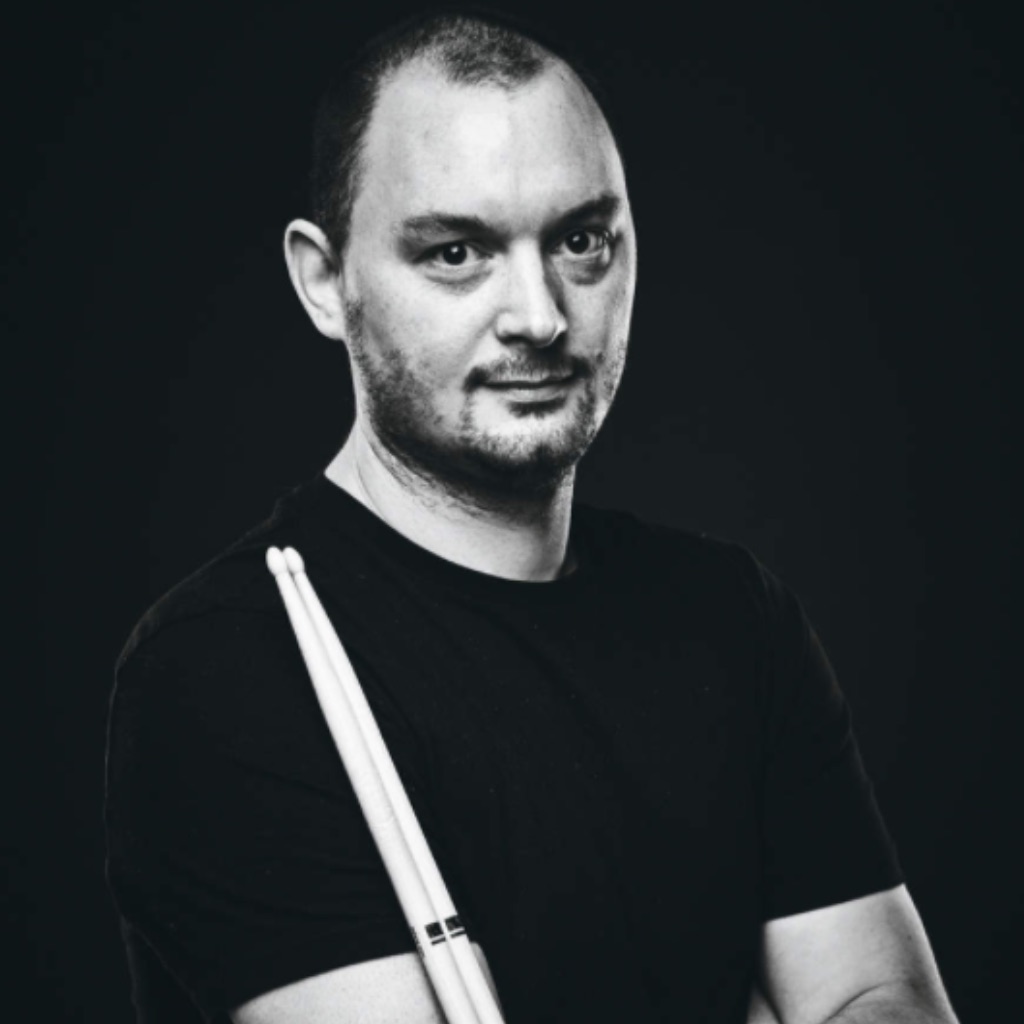
I'm a freelance member of the MusicRadar team, specialising in drum news, interviews and reviews. I formerly edited Rhythm and Total Guitar here in the UK and have been playing drums for more than 25 years (my arms are very tired). When I'm not working on the site, I can be found on my electronic kit at home, or gigging and depping in function bands and the odd original project.
“I used everything I knew about music”: How Green Day exceeded expectations with their most ambitious song
YouTube just added AI tools that makes musicians, library music and video editors redundant
“Every one of them said yes without hesitation": Hank Marvin and Roger Taylor have just remade a '60s classic for charity
